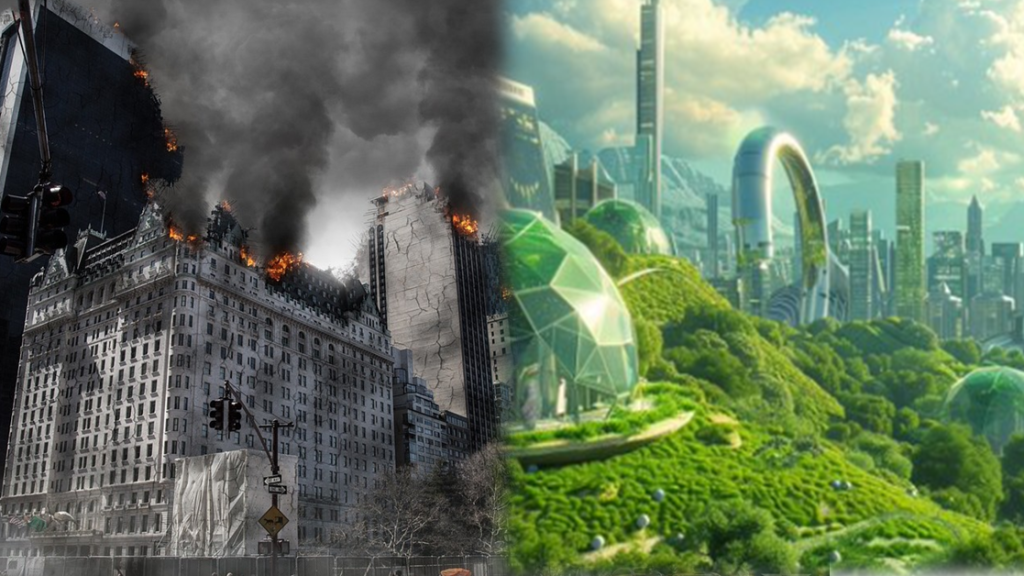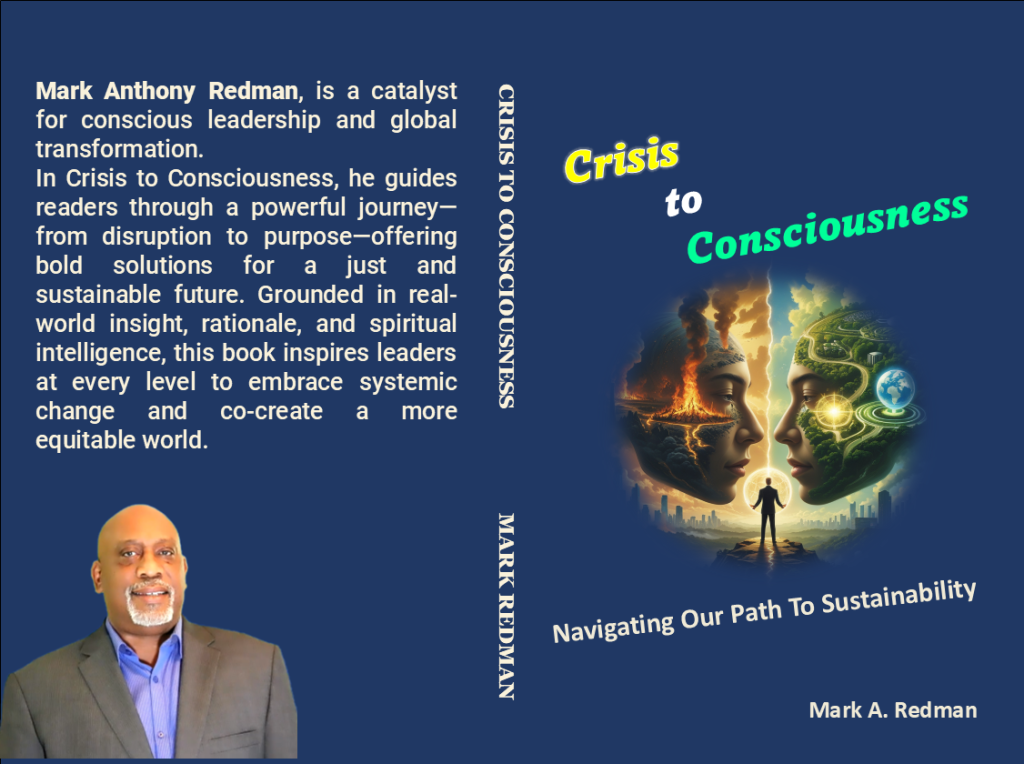Crisis to Consciousness

🌍The world we live in is the product of our collective mindsets and leadership models. We must make a swift and significant shift in our leadership paradigm; towards one of Peace, Equity & Sustainability 🌱
In a world facing unprecedented challenges, “Crisis to Consciousness” serves as a guiding light towards sustainable change. Mark Anthony Redman, a seasoned Organization Development and Change Management Coach, presents a compelling exploration of how we can shift from crisis-mode thinking to a collective consciousness focused on sustainability, justice, and positive transformation.
🚀 Key Features:
✨ Leadership for a Better Tomorrow: Discover profound insights on leadership, spiritual intelligence, and systemic transformation as catalysts for sustainable development.
🌿 Navigating the Challenges: Delve into practical strategies to address the pressing issues of our time—environmental sustainability, social justice, and global equity.
🌐 Global Perspectives: Uncover a wealth of knowledge drawn from diverse cultures and practices, providing a comprehensive view of the interconnectedness required for true systemic change.
💡 Inspiration for Action: Empower yourself with inspiring stories, thought-provoking reflections, and actionable steps towards a more conscious and sustainable future.
📚 Why “Crisis to Consciousness”?
This book isn’t just a read; it’s a call to action. Join the movement towards a more conscious, equitable, and sustainable world. Embrace the wisdom within these pages and become a catalyst for positive change.
🌈 Make a Difference. Start with Yourself.
Get your copy of “Crisis to Consciousness” today and be part of the transformational journey towards a brighter future.swi


AI Overview
*What would happen if Global Leaders applied the recommendations made in the book Crisis to Consciousness?
🌍If global leaders were to apply the recommendations of “Crisis to Consciousness,” it would likely lead to a more collaborative, resilient, and sustainable global landscape. This would involve a shift from a focus on individualistic, short-term gains to a more holistic, long-term approach that prioritizes collective well-being and ecological balance. Specifically, leaders would need to embrace a mindset of conscious leadership, fostering open communication, promoting shared responsibility, and valuing diverse perspectives.
Here’s a more detailed look at the potential impacts:
- Enhanced Collaboration and Trust:
- Shifting from competition to cooperation:
Leaders would prioritize collaboration and partnerships over competitive dominance, fostering a sense of shared purpose and mutual benefit.
- Building trust through transparency:
Open communication and honest dialogue would be crucial for building trust among leaders, citizens, and other stakeholders, reducing polarization and fostering a sense of unity.
- Facilitating collective action:
Leaders would empower citizens to participate in decision-making processes, fostering a sense of ownership and responsibility for addressing global challenges.
- Sustainable and Equitable Solutions:
- Prioritizing long-term well-being:
Leaders would move away from prioritizing short-term economic gains and focus on solutions that promote the long-term well-being of both people and the planet.
- Integrating environmental considerations:
Environmental sustainability would be a core consideration in all decision-making processes, leading to policies that protect natural resources and mitigate climate change.
- Addressing inequality and injustice:
Leaders would actively work to reduce social and economic inequalities, ensuring that the benefits of progress are shared by all.
- Resilient and Adaptive Systems:
- Embracing complexity and uncertainty:
Leaders would acknowledge the complexity of global challenges and develop adaptive systems that can respond to unexpected events and crises.
- Fostering innovation and experimentation:
Leaders would encourage experimentation and learning from both successes and failures, creating a culture of continuous improvement.
- Building strong social networks:
Leaders would prioritize building strong social connections and community resilience, enabling societies to better cope with shocks and disruptions.
- A Shift in Leadership Mindset:
- Moving beyond hero narratives:
Leaders would recognize that they are catalysts for change rather than heroic saviors, empowering others and fostering collective action.
- Developing empathy and compassion:
Leaders would cultivate empathy and compassion, understanding the diverse needs and perspectives of those they lead.
- Fostering a sense of shared purpose:
Leaders would inspire a sense of shared purpose and collective responsibility, motivating people to work together towards common goals.
In essence, applying the recommendations of “Crisis to Consciousness” would involve a fundamental shift in how global leaders think, act, and interact with the world. It would be a move towards a more conscious, collaborative, and sustainable future.
